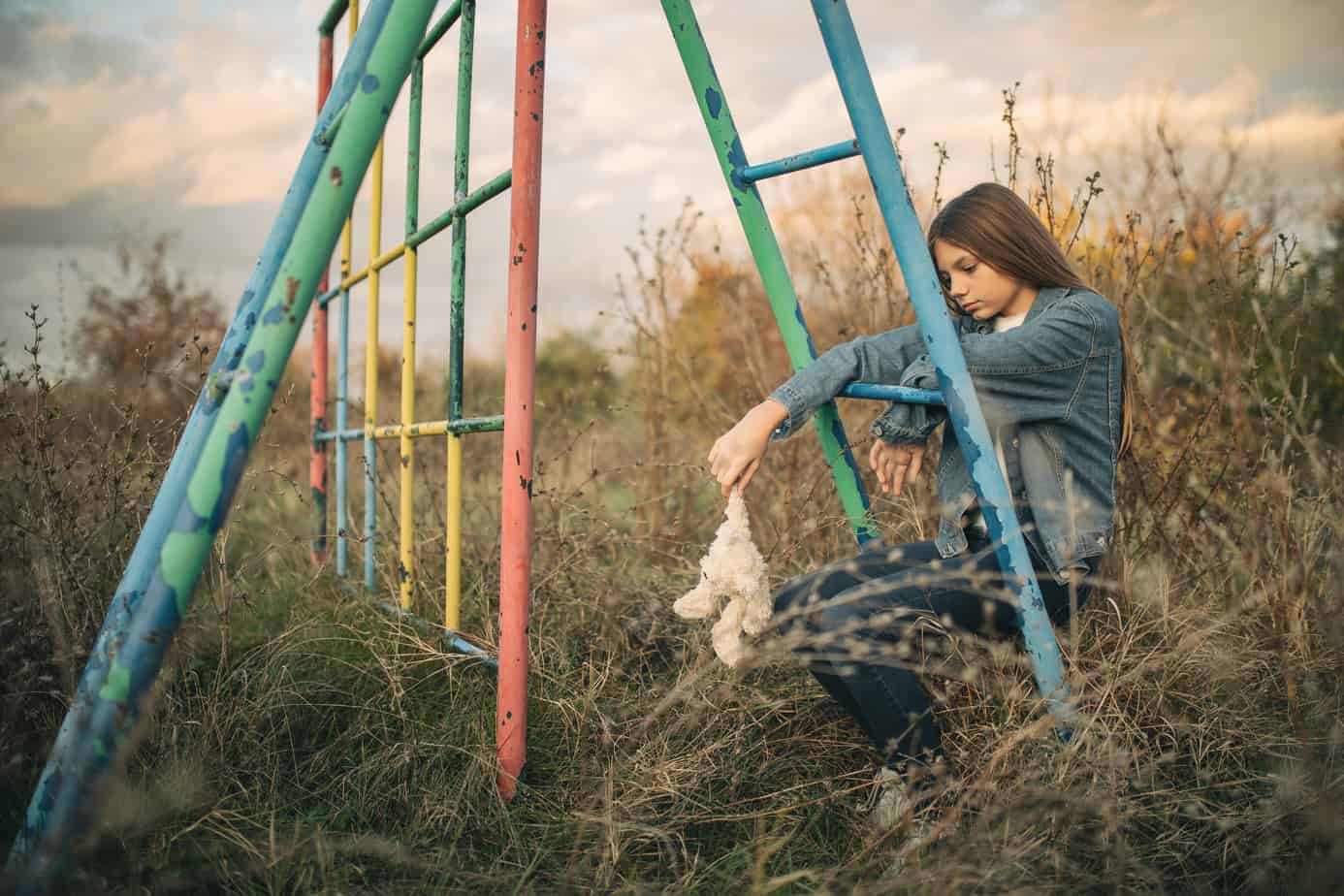In the US, approximately 7.5 million children are exposed to a parent’s alcoholism at home. Some parents may conceal their alcohol use disorder (AUD), while others may openly struggle with the effects of AUD. No matter the case, children of alcoholics are typically faced with trauma and more challenges than the average child.
Furthermore, having a parent with alcohol use disorder puts kids at a higher risk of developing alcoholism in the future. Alcohol addiction can be passed down through generations, so it’s important for teen and adult children to learn about potentially harmful habits and take control of any unhealthy behaviors to break the cycle.
What Do Children of Alcoholics Experience While Growing Up?
Parents that struggle with alcohol use disorder have unpredictable behaviors and can often cause dysfunction in their children’s lives. As a result, children of alcoholics may carry emotional damage with them into adulthood. They may lack healthy coping mechanisms, constantly feel down on themselves, and struggle to form lasting relationships with loved ones.
Anxiety, Shame, and Fear
Oftentimes, children of parents struggling with AUD don’t get to act as “children” at home. Ordinary events such as playdates, parent-teacher conferences, and sporting activities—which can typically strengthen the bond between a parent and child—become sources of anxiety and humiliation. Inviting friends over the house can prompt shame because they could be embarrassed by their parent’s behavior, or they may feel the need to keep their parent’s alcoholism a secret.
Many alcoholic parents have erratic mood swings and become violent with their children while intoxicated. Whether the parents are physically or mentally abusive, kids will grow up wondering why the person who is supposed to love and nurture them is actually the person they fear the most. Sometimes, the child can even develop a form of PTSD called C-PTSD if the abuse happens repeatedly.
Neglect
Child neglect means depriving children of access to their basic needs or behaving in a way that can harm the child. When people hear someone has been neglected, they usually think of it as physical neglect – a child not receiving adequate food, shelter, clothing, or medical care. However, children can also be emotionally neglected by their alcoholic parents. For example, celebratory occasions like getting an A on a test are usually ignored by addicted mothers or fathers because they are too consumed with their addiction. These actions harm the child, leading to developmental delays, low self-esteem, depression, and other psychological conditions.
Substance abuse does not always cause a parent to intentionally neglect their child. But according to scientific studies, more often than not, alcohol has been found as the culprit behind parents’ negligent behavior. The link between neglect and excessive drinking in parents is due to the dangerous side effects of alcohol. For addict parents, alcohol impairs their cognitive abilities, makes them more likely to have irrational thinking patterns and memory loss, and slowly become withdrawn from their kid’s life.
Resentment
Kids or teens who grow up in an addicted household may hold a lot of built-up resentment toward their parents because they never got to have a “normal” childhood. Their only sense of normalcy was a life filled with chaos, disappointment, and shame. Instead of going to the playground with friends, they might be caring for a younger sibling or searching for their next meal. In other words, a child of an alcoholic father or mother grows up fast and learns how to fend for themselves.
It is extremely difficult for a child to grasp the magnitude of addiction and the impact it can have on someone they love. From an early age, children of parents struggling with AUD are shown that they cannot rely on their caregivers; thus, they have difficulty building trust and positive relationships with others. As a result of all of this, many kids harbor resentment toward their addicted parent well into adulthood.
What are Common Struggles Children of Alcoholics Develop?
As a child’s mind develops, the environment of their upbringing has a significant impact on their emotional regulation, processing, and behavior. As a result, some of the common struggles a child of an alcoholic parent may face include:
- Extremely irrational or overly cautious thinking patterns
- Damaging, impulsive reactions or decision-making
- Defensiveness
- Trouble fitting in or feeling they don’t belong
- Difficulty forming healthy relationships
- Propensity to develop mental health disorders
- Trust issues or struggling with feelings of safety or security
- Strong desire to seek approval from perceived authority figures
- Hesitance/reservations in standing up for themselves
- Loyalty to those who mistreat them
- Feelings of guilt about having fun
What Positive Qualities Can Children of Alcoholics Develop?
While we often tend to focus on the difficult experiences, children of parents with AUD can also have many perceived “advantages” or strengths as a result of overcoming their traumatic past. Although nobody asks to grow up living with alcoholic parents or has a choice in the matter, it is important to recognize these children’s resiliency.
Independence
One common strength of these children is their propensity to have to “grow up fast” and learn to take care of themselves at a much earlier age than their developmental milestones would dictate. When their parent cannot care for them during active addiction, the child’s survival instincts may kick in, causing them to become prematurely independent.
Some children of alcoholics end up feeling like the parent for their parent. This can create an individual who appears more mature and responsible than they should be at their age.
Reliability
Reliability is another positive trait that these kids often possess because they are constantly trying to make up for their alcoholic parent’s erratic presence. Their parent may be out drinking at random times during the day and night and when at home, spend hours in bed nursing a hangover.
Children of parents struggling with alcoholism know what it is like to be disappointed over and over by their alcoholic mother or alcoholic father not showing up. These children tend to become reliable people to lean on when times are tough.
Empathy
Empathy is also an “advantage” of children who have parents with AUD. These children have the ability to empathize with other people’s struggles. They have grown up living through traumatic and stressful experiences, which make them great listeners and compassionate friends when it comes to putting themselves in other people’s shoes.
Perfectionism
Another strength of children of alcoholics can be that they hold themselves to a high standard when faced with challenges. Many kids become perfectionists, often trying to receive the attention they might lack at home by overperforming in other areas of their life. This mindset can help them down the road when they are attending college or seeking a job.
What Happens When Children of Alcoholics Reach Adulthood?
Alcohol addiction is a complex disease that affects the person abusing alcohol as well as their entire family. Children of alcoholics may carry the emotional damage from childhood into adulthood, which can affect their relationships and how they handle stress and conflict.
Likelihood of Addiction Increases
While genes make up about half of an individual’s risk for developing alcoholism, it is not the only contributing factor. The other half depends on an individual’s environment, culture, personality traits, and even brain structure. Studies show a person who was raised in a household with alcoholic family members is four times more likely to develop alcohol addiction, compared to the general population, because they were exposed to substances at an early age.
Fortunately, if someone grows up with an alcoholic father or mother, it is not guaranteed that they will become addicts themselves.
Mental Health Issues Should Be Addressed
It’s important that they discuss their past experiences in a safe, welcoming environment, such as in a support group. They might have developed unidentified addictions or mental health disorders of their own that they should seek help for.
Children of alcoholics can proactively prevent alcoholism by going to therapy and receiving proper drug education. Doing so will help them learn more about their negative behaviors and thought patterns that could lead to substance dependence. Perhaps they are too hard on themselves or allow themselves to get pushed around—now is the time to put their needs first and focus on their own well-being.
Parent-Child Relationship Changes
Adult children of alcoholic parents have more control over what kind of relationship they want with their mother or father. Unlike when they were younger, they now have the choice to set boundaries with their parent. Establishing boundaries with addicted parents could help adult children set clear expectations and limits on how their parents can treat them. If the boundary is adhered to, it can even strengthen their relationship later in the future.
Forgiving your addicted loved one is sometimes challenging, but often necessary to truly release any burdening thoughts that you’ve been holding in. The problems won’t be fixed overnight—and there’s a chance they may never be fully resolved—but you will be able to find peace in expressing your emotions and letting your parent know the impact their addiction has had on you. Part of healing from past trauma is having autonomy to decide what type of present relationship you want to have with an affected parent.
Some adult children of alcoholics may feel that their childhood was disrupted by their parent’s addiction, but this doesn’t have to hold them back. Although they might have struggled through hardships, there are many valuable qualities that these individuals have gained as well. Through seeking mental health support and avoiding bad habits, these adult children can learn how to handle stress, form healthier relationships with loved ones, and break the cycle of alcohol addiction.
If you or a loved one is struggling with addiction, Mountainside can help.
Click here or call (888) 833-4676 to speak with one of our addiction treatment experts.

 By
By 







